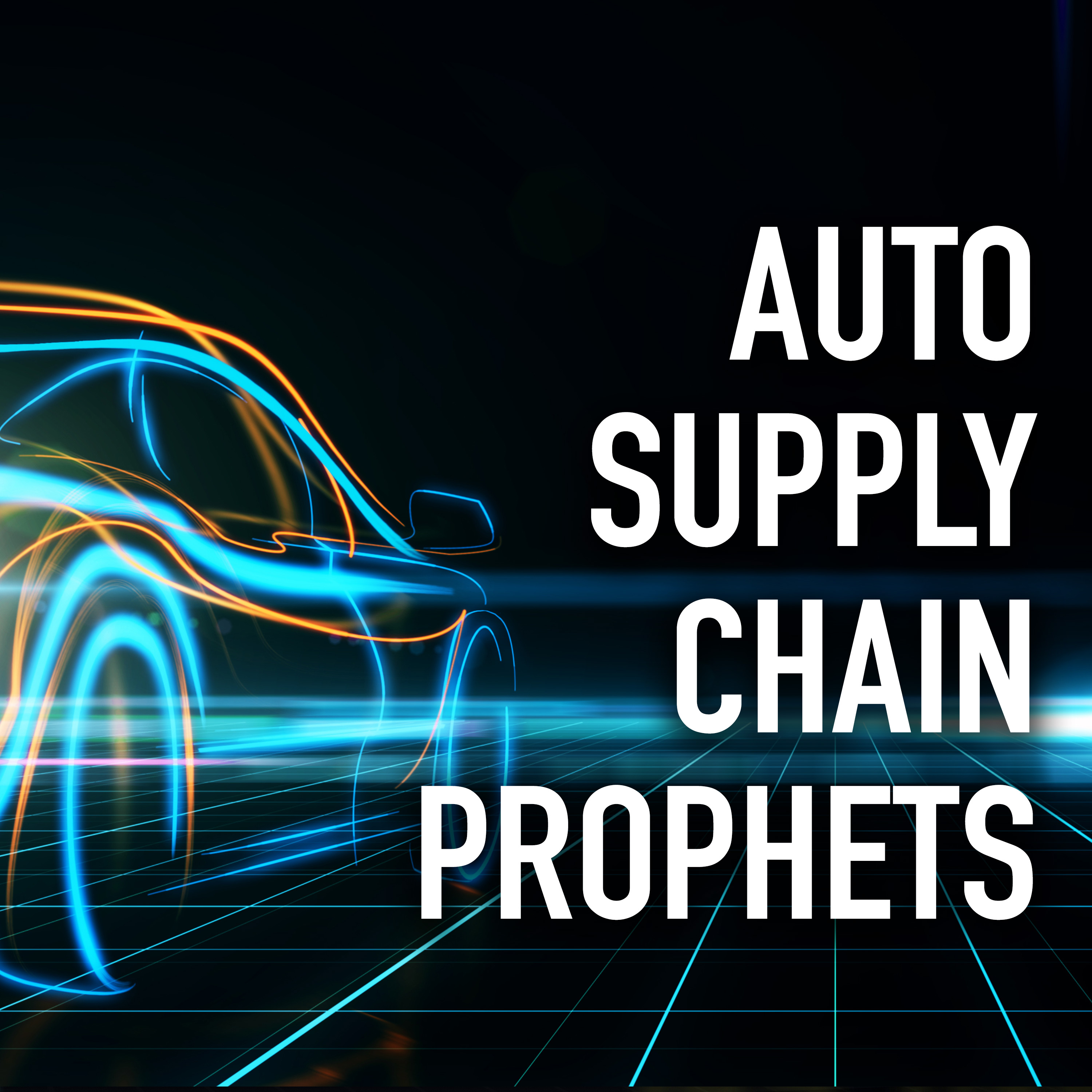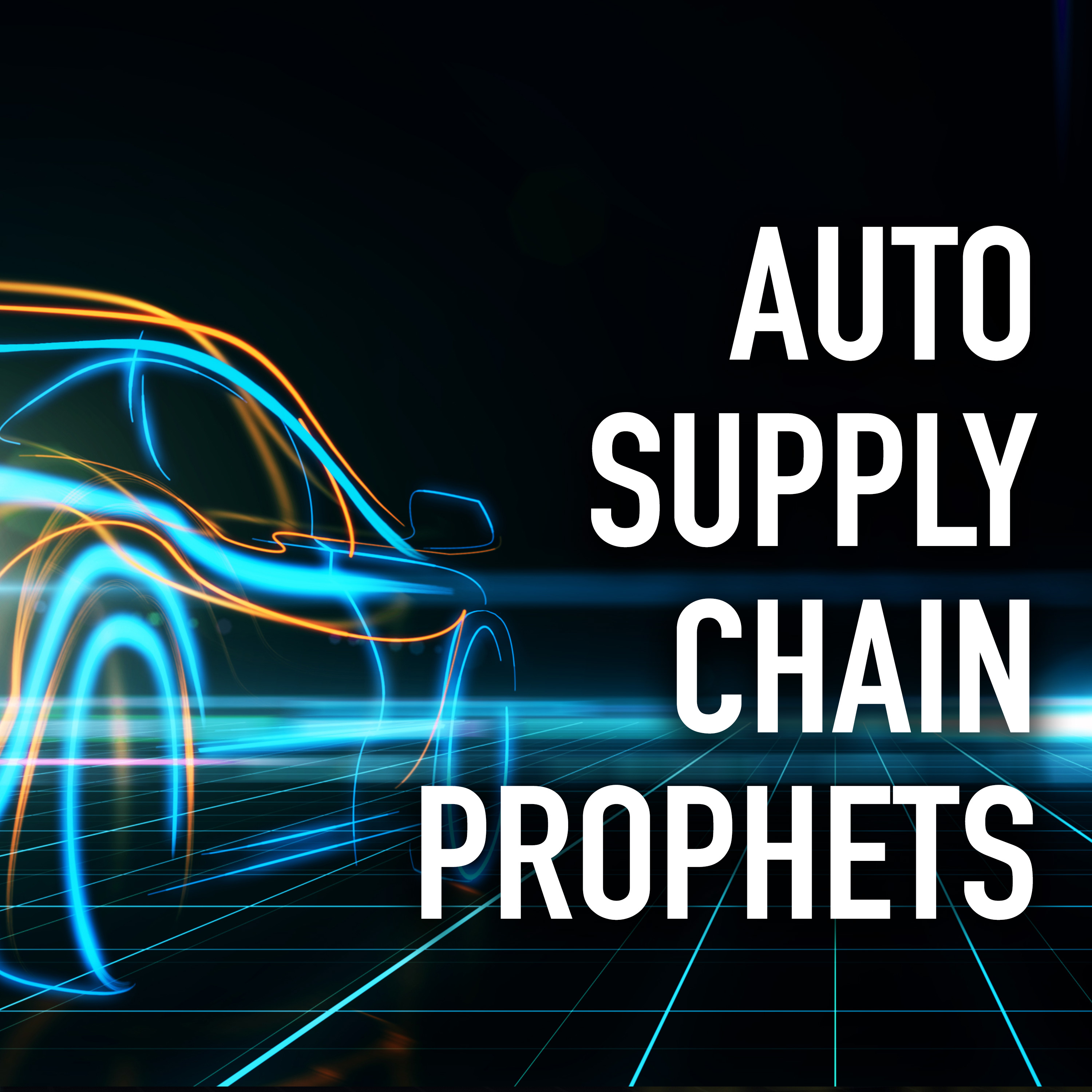Meet the Software Supplier in 600 Million Vehicles
In this Auto Supply Chain Prophets episode, hosts Terry Onica and Jan Griffiths explore the world of automotive software and technology with their guest, Manoj Karwa, Chief Revenue Officer for the Americas at Elektrobit.
Manoj dives into the exciting world of Software-Defined Vehicles (SDVs) and the advantages of open-source technology. He explains how SDVs, much like smartphones, will continually evolve with new features and improvements over time, enhancing everything from infotainment to safety.
Elektrobit is at the forefront of these innovations, with its software powering over five billion devices across over 600 million vehicles. Manoj highlights Elektrobit's groundbreaking Linux OS solution, the first and only to meet ASIL B/SIL 2 safety requirements. This commitment underscores Elektrobit's dedication to advancing safer and more reliable Software-Defined Vehicles.
The discussion also covers the challenges and importance of validating software to prevent issues like the recent CrowdStrike incident that caused the largest outage in the history of information technology.
When it comes to choosing the right software partners, Manoj believes that opting for the cheapest option can backfire. Instead, he advocates for focusing on value and quality, drawing from his experience in the automotive industry. He notes that as the market becomes more fragmented with new players and technologies, flexibility and a commitment to delivering exceptional value will be key for supply chain leaders.
Manoj concludes the episode with critical advice for leaders in the automotive supply chain: prioritize software above all else. He warns that failing to adapt to this software-driven future could lead to obsolescence, urging leaders to reinvent themselves or be left behind.
This episode is a must-listen for anyone in the auto supply chain looking to understand the future landscape of automotive technology and software's pivotal role in driving innovation and efficiency.
Themes discussed in this episode:
- The role of automotive software in Software-Defined Vehicles and automotive technology
- Understanding the potential benefits of Elektrobit's open-source source approach
- How Software is transforming the automotive sector, including innovation and integration challenges
- Enhancing customer experience through software updates and added functionalities.
- The importance of software validation in ensuring the safety and security of software in vehicles
- Strategies and considerations for managing the supply chain with a focus on software integration.
- Why designing the software before the hardware is essential in today's automotive landscape
Featured on this episode:
Name: Manoj Karwa
Title: Chief Revenue Growth Officer Americas at Elektrobit Automotive Americas Inc.
About: Manoj Karwa, Chief Revenue Growth Officer Americas at Elektrobit Automotive Americas Inc., brings over 20 years of experience in the mobility industry, specializing in electric vehicle infrastructure, electric drive, power electronics, and energy storage systems. He has played key roles in scaling operations and facilitating acquisitions in the EV and renewable energy sectors, including overseeing the deployment of over 10,000 EV charging stations across major automakers and nearly 3,000 dealerships. Before Elektrobit, Manoj held leadership positions at EVBox, Leviton Manufacturing, General Motors, AT Kearney, and Ricardo Consulting and was part of the management team that led to the acquisition of Rhombus Energy Solutions for $185MM by BorgWarner, marking the largest North American electric vehicle infrastructure transaction to date. He also serves as a board member of the University of Michigan Economic Growth Institute and holds degrees from Carnegie Mellon University, Purdue University, and the University of Michigan.
Connect: LinkedIn
Mentioned in this episode:
- Software-defined Vehicles
- Elektrobit’s open-source approach
- ECU (Electric Control Unit)
- API (Application Programming Interface)
- What is ADAS (Advanced Driver Assistance Systems)?
- EB corbos Linux for Safety Applications
- 2024 CrowdStrike incident
- COVESA, Autotech Council, & SAE International
- Volkswagen to invest $5 billion into Rivian
Episode Highlights:
[04:47] Elektrobit and Software-Defined Vehicles: Manoj introduces Elektrobit and delves into software-defined vehicles, explaining how it transforms cars into continuously updated platforms through software updates.
[06:14] What is Open Source? Elektrobit's view and approach to open-source software highlight the collaborative benefits and the potential for rapid innovation and cost savings in the automotive industry.
[09:00] A Leader in Automotive Software: Manoj explains Elektrobit's competitive edge in the industry and showcases the first and only Linux OS solution to comply with ASIL B/SIL 2 safety requirements.
[10:29] Software Delivery: Manoj explains Elektrobit's various partnerships and commitment to over-the-air updates to integrate software with vehicles seamlessly.
[11:29] CrowdStrike Incident: Manoj recounts his experience with a significant cybersecurity incident involving CrowdStrike, emphasizing the critical importance of validating software to prevent failures and ensure safety.
[15:35] Cheapest is Not the Way to Go: Understand why opting for the cheapest solution in automotive software is a mistake. Manoj offers valuable advice for industry leaders looking to partner with software providers.
[19:24] Why Offer Software? Companies should start offering software solutions to position themselves at the forefront of the automotive industry's shift towards Software-Defined Vehicles.
[24:38] Think of Software First: Manoj explains the disruptive impact of prioritizing software development before hardware design and how embracing this mindset is crucial for automotive companies' future survival and competitiveness.
Top Quotes:
[05:34] Manoj: “What is Software-Defined Vehicles? Well, just like your smartphone, when you first buy it, it keeps getting better. The expectation is there are more features and more benefits, and you're going to evolve; the vehicle will evolve over time to meet customer and fleet requirements. There's a wide range of sensors to provide inputs, and there's communication internally and externally. The expectation is that it's not a one-and-done, that you buy it, and this is the experience. But the fact is that it'll get better over time; it'll delight you either with infotainment, with safety, with performance, with diagnostics; this is what's happening now, and this is the future.”
[14:15] Manoj: “The example that happened with the airlines and the hotels (CrowdStrike), that was not a malicious attack. But when we're talking about autonomous, connected, shared vehicles, if this occurs, this is why it's so important to validate software, either through virtualization, through demonstrations, upfront, before you push it forward. I can only imagine what would happen in the US or any other country where a type of vehicle or a segment of the market just slows down or gets stopped. It made me very thoughtful about what I'm doing today with Elektrobit and how important embedded software is in everything we use, especially transportation.”
[17:05] Manoj: “I need to differentiate between providing more value to the customer and more value in terms of either quality or saving them time and resources. I need to continue to delight them and overdeliver. I actually learned this from Toyota: “Underpromise and overdeliver.” So, this is hopefully a wake-up call to the supply chain leaders that a race to the bottom, the lowest cost, is not the way to go.”
[18:53] Manoj: “The reality is you have to be flexible, nimble, and to be able to scale. I believe that we're well-positioned for that. The point is that if you're a supply chain leader, looking at the total cost, the long-term relationship, I think, is critical. The second thing is don't go towards proprietary systems. Don't single source. Having multiple partners, maybe a lead partner and a secondary, and as most supply chain managers do, challenge your suppliers to provide the best solutions.”
[25:21] Manoj: “Think of software first. Think about what I can do with the software and then design the hardware around that. That is an approach that's disruptive and challenging because if I'm a, let's say, a foundational or legacy OEM, I have all these contracts. I have factories. I have unions. I have millions and millions of vehicles on the road I have to maintain for a decade plus. So, I'm being challenged by this. How do I disrupt that to think of software first? … If I am managing the supply chain, if I don't do this today, I'm not going to survive. This is the future. And it's a matter of time. There's going to be a tipping point where the foundational, the existing supply chains are not going to work.”
Transcript
[Transcript]
[: [: [: [: [:So, today it gives us great pleasure to bring on a guest who is, wait for this, not only grounded in the realities of the automotive business, he's been there, done that. He started his career with General Motors and he's worked in the Tier Ones, but he also has deep, deep knowledge in the world of electronics and software. And if that isn't enough, he operates with the visionary edge of a startup entrepreneur, which is a rare combination, particularly in our auto industry. And if you look at his history on LinkedIn, you'll see it. And we actually worked for the same company at some point in time in the wire harness business, but we missed each other. He's also a board member of the University of Michigan Economic Growth Institute. How's that Terry for a background?
[: [: [: [: [: [: [:What are Software-Defined Vehicles? Well, just like your smartphone, when you first buy it, it keeps getting better. The expectation is there's more features, more benefits, and you're going to evolve; the vehicle will evolve over time to meet customer and fleet requirements. There's a wide range of sensors to provide inputs, and there's communication internally and externally. The expectation is that it's not a one-and-done, that you buy it, and this is the experience. But the fact is that it'll get better over time; it'll delight you either with infotainment, with safety, with performance, with diagnostics; this is what's happening now, and this is the future.
[: [: [: [: [: [: [: [: [: [: [:In addition, we love to participate in over-the-air updates because there's an expectation now to continuously improve your vehicle and continuously improve any sort of transportation. And that's how we also support a lot of our different customers.
[: [: [: [: [: [: [: [: [: [: [: [: [: [: [: [: [: [: [:
